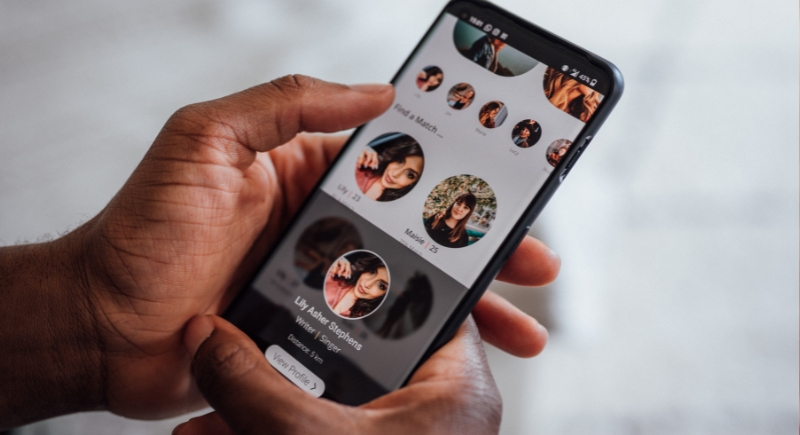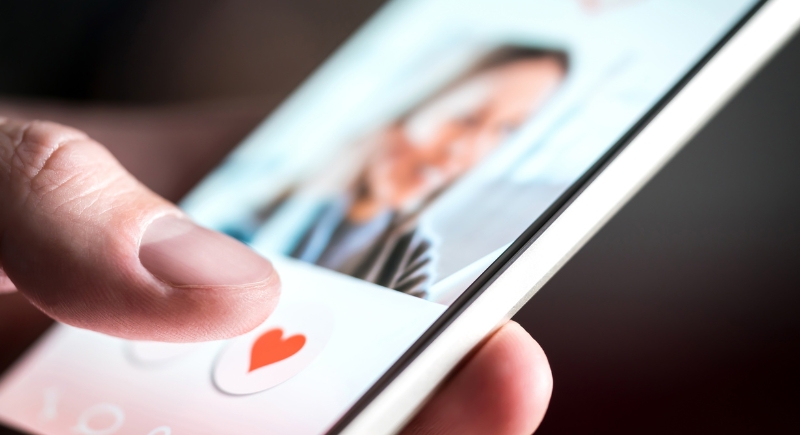Why Mental Health Experts Are Raising Red Flags About Dating Apps
Dating apps have changed courtship into something fast, searchable, and always available. What once depended on chance meetings or introductions now runs through endless profiles and quick swipes. That shift has opened doors for many people, but it’s also raised concerns among therapists and researchers.
They argue that the design of these platforms affects more than social habits—it can chip away at emotional health. Recognizing those risks, they say, is the starting point for using dating apps in ways that protect rather than erode well-being.
The Dopamine Loop That Fuels Swiping

Image via Getty Images/Ahmani Vidal
Therapists compare dating apps to slot machines, where every swipe carries the potential for a dopamine reward. Matches and new messages provide temporary highs, but the cycle ends in a sharp drop when nothing happens. This pattern conditions users to keep swiping in search of the next boost.
Studies link this behavior to compulsive use, which mirrors patterns seen in gambling and social media. Even the anticipation of a possible match can be enough to keep people engaged for hours and lead to time loss, frustration, and a heightened risk of addictive patterns.
Instead of building confidence, this loop leaves many users feeling empty and dissatisfied. Experts note that breaking free requires setting strict boundaries around app use and resisting the urge to treat swipes as a form of entertainment rather than a step toward meaningful connection.
Emotional Burnout Through Rejection and Ghosting
Users often describe feeling exhausted by the repetitive nature of online dating. Ghosting, unmatched conversations, or abrupt endings create a pattern of rejection that wears down resilience. A survey found that nearly half of dating app users reported frustration, with only a minority expressing hope about the experience.
This is why counsellors emphasize that constant rejection is not neutral, since it accumulates and shapes how people view themselves. Ghosting can feel humiliating because it provides no closure and leaves individuals to interpret silence as a personal failure.
Eventually, this leads to burnout and sometimes complete withdrawal from the apps. People who start out hopeful often end up anxious, drained, or cynical.
The Business Model That Keeps Users Hooked

Image via Canva/pocstock
Mental health experts highlight that dating apps are not created for long-term success. Companies profit when users remain active, not when they find lasting relationships and leave.
Experts have raised concerns about monetized features that promise more visibility or faster matches, warning that these add-ons may increase time spent on apps without consistently improving real-world outcomes..
This design keeps users chasing better outcomes while rarely improving real results. Mental health professionals also worry that young users may become especially attached to the fast-paced feedback of dating apps, which shape habits and self-image around external approval rather than face-to-face connection.
Rather than practicing in-person social skills, many rely on curated online personas, which can stall confidence in face-to-face interactions. The abundance of profiles also creates decision paralysis and overwhelms users who fear missing out on the “right” choice.
Setting Boundaries for Healthier Use

Image via Getty Images/Tero Vesalainen
According to professionals, it is wise to approach dating apps with a goal in mind, rather than spontaneity. Turning off notifications, limiting daily time, and avoiding swiping during stressful moments are effective first steps.
Some users practice “detox” periods where they delete apps temporarily to reset. Meanwhile, some people adopt selective approaches such as the “Burned Haystack” method and focus only on matches that align closely with their goals.
On the other hand, offline activities, such as sports clubs or community groups, provide alternatives that nurture self-esteem without the dopamine traps of swiping.